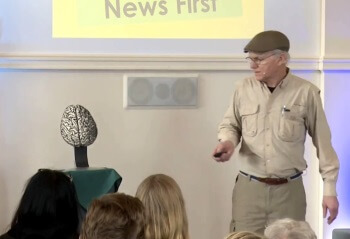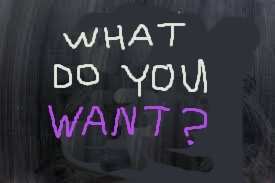 Doing a TEDx talk was one of those extreme experiences for me. I hadn’t talked about my work in public for a good ten years before this.
Doing a TEDx talk was one of those extreme experiences for me. I hadn’t talked about my work in public for a good ten years before this.
Preparation, they say, is everything.
I’ve read that those who are selected for a TED talk could be practicing their presentations for up to six months before the big day. For some, that adds up to reciting it as much as four-hundred times!
But I had no such opportunity. It wasn’t till sometime in November that I got my acceptance notification from the event organizers. My stage time was slated for after lunch on Saturday February 27th, 2016. That’s less than four months, which wouldn’t have been that bad, except that I had volunteered my time to build out and maintain the TEDxChilliwack.com website. Of course, I still had to write my script and prepare the visuals for the slides.
Friday night at 8:30PM, before the big day, I was on my way home from the dress rehearsal. I decided to park under a street light and edit down my script even more than it was. I had to win back as many seconds as I could. It was the third major edit but was still a bit too long for me to remember it all and besides, they allotted me less delivery time on stage than I’d asked for.
Oh oh.
Going overtime is a big nono at a TEDx event.
Of course, with all these changes the flow of how it was supposed to be recited changed. So, tired as I was, I had to try to practice it right there alone in my car under the glare of a street light. I took out my script and began. It was raining outside. I’m not sure how long i was there but, after a while, I drove home and quickly ate something. Then I went into my home office to practice some more.
There is always a trade off between exhaustion and being able to perform. That last edit raised another level of difficulty in the final presentation itself. On the day of I had hoped to practice backstage until I’d be called up to go out. I didn’t have to speak till 1:30 pm so I had some wriggle room.
So, I sat in a chair and open my script which I had printed out with thumbnails of all the slides that went with it. Then suddenly and with a degree of panic one of the organizers came and got me.
“We need you NOW!” he said. There was a problem and they needed access to the website’s back office. As the volunteer webmaster for TEDxChilliwack.com I should have had that info but this day was important to me as far as my presentation was concerned and all else was put aside.
The plan of the tech team was to live-stream the event on YouTube. It went quite well for a time and then… it didn’t! YouTube shut us down because, between each group of 4 speakers, they planned to play a pre-recorded TED talk taken from the main TED Talk channel. Apparently, that’s in stark contrast to the laws of the YouTube algorithms. So, it shut us down for copyright infringement . The tech team scrambled to quickly set up another YouTube channel and then, once that was done, they wanted to switch out the embed code in the live feed page of the TEDxChilliwack.com site. That’s when they came to me to show them how to get into the site.
I tried to assist but my passwords are all kept in a password manager on my PC at my home office. Apparently, none of the organizers had theirs either. Finally Ray, the lead organizer, went home. as it was close by, and did it all from there. The feed was restored and from then on they turned it off during any of the other recorded TED talks. This prevented the banned notice that had popped up because YouYube had detected a violation of copyright. Everything seemed to work well after that.
But with all that running around I had burned up a my last chance to practice. Not long after I was called up. So, with my script still in hand, the audio guy fitted me with the cordless microphone. At the last second I dropped my script on the table, swallowed hard, and then went out on stage and stood in front of a hundred strangers. I was the only one of all nineteen speakers who’s presentation included both props and slides. My talk was about a mystery brain. A complicated subject no one had ever heard of before. So I wanted to make it as clear and simple as I possibly could. I’m a visual artist so I used lots of slides with images. Both actual physical models of both head and gut brains as well as images projected on the wall behind me.
But this setup raised the level of difficulty up a few more notches on top of the notches I had already collected. Having never done a complete dry run of my talk made it all the more difficult to manage in front of a live audience. That was probably my biggest shortfall.
In addition to that, I was a bit startled as I began to speak. I had never heard my voice amplified before. The big speakers were right behind me. One on the left and another off to my right.
I was taken aback enough that the very first few words out of my mouth were never a even part of my script. I don’t know where they came from but, once they were out, I couldn’t take them back.
Of course, all this was being recorded and then eventually uploaded to the TED Talk YouTube channel for all the world to see.
But, no pressure.
In the end I persisted to move a mountain that day… and I didn’t die doing it. When I finished it felt very relieving to say the least. It took me several days to recover from the output of the previous weeks of late nights and very early mornings.
The takeaway I got from all this is: In a live TEDx talk, as in life, you learn that you can’t wait for the storm to pass so you might as well dance in the rain.
More power to you my friend.
Mobiusman



